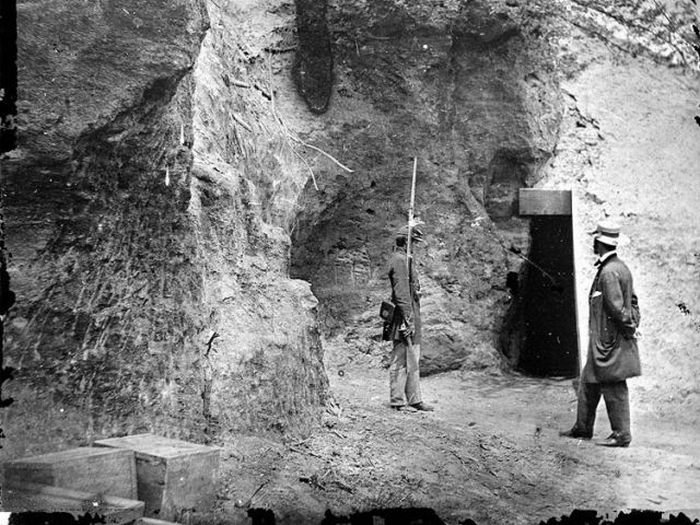|
|
History: American Civil War (1861-1865)
|
Support for secession was strongly correlated to the number of plantations in the region. States of the Deep South, which had the greatest concentration of plantations, were the first to secede. The upper South slave states of Virginia, North Carolina, Arkansas, and Tennessee had fewer plantations and rejected secession until the Fort Sumter crisis forced them to choose sides. Border states had fewer plantations still and never seceded.
As of 1860 the percentage of Southern families that owned slaves has been estimated to be 43 percent in the lower South, 36 percent in the upper South and 22 percent in the border states that fought mostly for the Union. Half the owners had one to four slaves. A total of 8000 planters owned 50 or more slaves in 1850 and only 1800 planters owned 100 or more; of the latter, 85% lived in the lower South, as opposed to one percent in the border states. According to the 1860 U.S. census, 393,975 individuals, representing 8 percent of all US families, owned 3,950,528 slaves.
Ninety-five percent of African-Americans lived in the South, comprising one third of the population there as opposed to one percent of the population of the North, chiefly in larger cities like New York and Philadelphia. Consequently, fears of eventual emancipation were much greater in the South than in the North.
The Supreme Court decision of 1857 in Dred Scott v. Sandford escalated the controversy. Chief Justice Roger B. Taney's decision said that slaves were "so far inferior that they had no rights which the white man was bound to respect". Taney then overturned the Missouri Compromise, which banned slavery in territory north of the 36°30' parallel. He stated, "The Act of Congress which prohibited a citizen from holding and owning (enslaved persons) in the territory of the United States north of the line therein is not warranted by the Constitution and is therefore void." Democrats praised the Dred Scott decision, but Republicans branded it a "willful perversion" of the Constitution. They argued that if Scott could not legally file suit, the Supreme Court had no right to consider the Missouri Compromise's constitutionality. Lincoln warned that "the next Dred Scott decision" could threaten Northern states with slavery.
|
|









